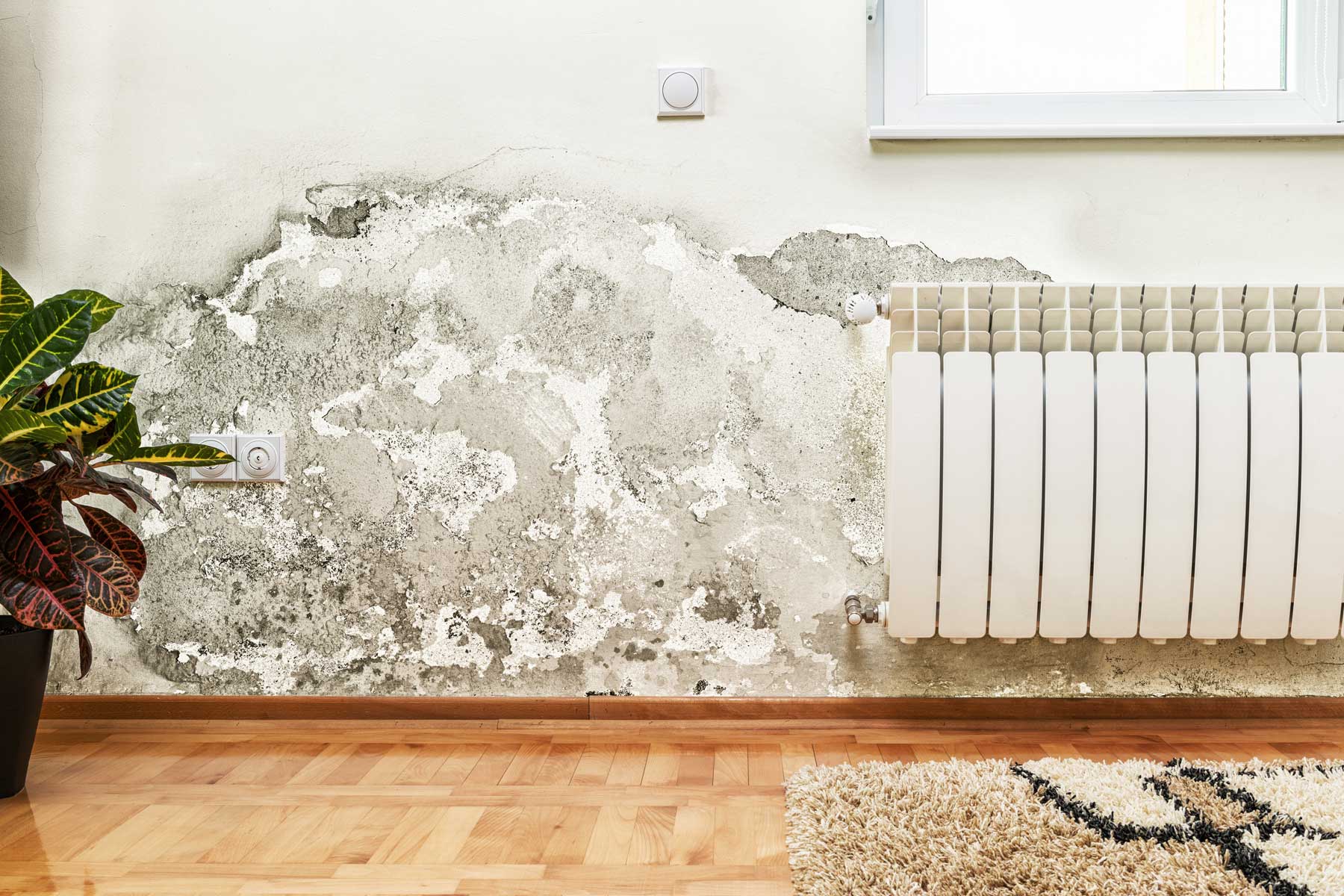Mold in the apartment – the great guide
Mold in the home is not only disgusting, it can also be the trigger for a wide variety of diseases. Mold is usually only noticed in the apartment when it has already spread. The first signs of mold in the apartment are an unpleasant “musty” smell and dark spots on the walls. In this guide you will learn what possible causes there are for mold in the apartment, which diseases mold can trigger and of course also how you can get rid of mold in the apartment in the long term. A little tip right at the beginning: A air cleaner becomes a powerful weapon when you want to declare war on mold in your apartment!
What is mold and why does it colonize my apartment?
From a scientific point of view, mold is a fungus, more precisely mold is a systematically heterogeneous group of filamentous fungi from the group of Ascomycetes and Zygomycetes. To put it less scientifically, molds are a construct made up of innumerable small, fine threads, the so-called mycelia. These mycelia are largely invisible to the human eye. What you perceive as mold in your apartment are rather the “sexual organs” of the fungus, the sporangia, sporangia are spore carriers, at the end of which spores form, which in turn are responsible for the reproduction of the fungi.

Good mold, bad mold
Mold does not only occur in your home, but everywhere in nature. Accordingly, the mold’s spores are always present in the air. If these spores do not appear in large numbers, they are harmless to humans, but can trigger allergies. In some cases, mold spores cause serious illness, especially in people with weakened immune systems.
Around 130,000 different types of mushrooms are known – some of them can be used for dairy farming. Think of the noble mold on cheese or sausage. Vegetarian meat substitutes are made from the mold Fusarium venenatum, and Botrytis cinerea causes so-called noble rot in viticulture. Mold can also save lives! Penicillin, an antibiotic, is made as a metabolic product of mold. And then there is Aspergillus niger, which is used in industry to produce citric acid. This mold causes different diseases in humans at the same time.
How does mold harm people?
A mold can not only affect an apartment, it can also cause direct harm to people through its metabolic products, cell components and spores. In addition to allergic reactions, fatal poisoning can also be caused by mold. Aspergillus fumigatus in particular attacks and destroys body tissue and can thus lead to death.
How does mold get into the apartment?
Mold spores are transported through the air and are therefore your constant “roommates”. This is not a problem until the mold finds ideal living conditions in your home and settles down at home. For mold to grow, it needs food, a comfortable temperature and sufficient humidity. Mold finds its food in plaster, wall paint, wallpaper or wallpaper paste, but also on furniture or clothing. Molds love a high humidity of 80% or more. When this moisture is given over a period of around five days, growth begins.
Common causes of mold in the home are:
- Warmly heated room air enriched with moisture, which condenses as water vapor on the colder walls or furniture.
- Increased air humidity that is not “ventilated” thoroughly and so the moisture on walls and furniture cannot dry off.
- Thermal insulation that is permanently moistened by capillary cracks or heavy rain and the moisture that has penetrated cannot dry off.
- Defective water pipes, clogged drains or dripping connection hoses from washing machines or dishwashers.
- Penetration of rainwater.
What are the symptoms of mold in the apartment?
Under certain circumstances, mold in the home can spread completely unnoticed. The symptoms that mold can cause in the home are unfortunately not clear and are therefore insufficiently suitable as an indicator of possible mold infestation. Symptoms include:
- headache
- Severe tiredness
- Burning eyes
- Rashes
- Difficulty breathing
- cough
- stomach pain
What diseases can mold cause in the home?
In addition to an allergy, many other, sometimes highly dangerous diseases can develop if mold in the apartment is not combated early and thoroughly. In addition to heart and lung diseases, asthma, bronchitis or even severe infectious diseases such as histoplasmosis, sporotrichosis or zygomycosis can occur.
Can you fight mold in the apartment on your own or do you need a professional?
Mold in the home can be a serious hazard. It is therefore always necessary to weigh up on a case-by-case basis whether you can fight mold in the apartment yourself or whether a specialist company should be brought in. In the case of small areas that are infected with mold, mold remover can be used to try to stop the fungus. In the case of a larger infestation that also attacks the building structure of the apartment, a specialist company is unavoidable. Since specialist companies are not available overnight to remove mold, you should make sure that the fungus does not spread any further while you wait. With a air cleaner you can keep the spores in check until the infested areas can be cleaned up.
This is how an air purifier helps against mold in the home
Excessive humidity is the main cause of mold growth. It is therefore important to set the air humidity permanently to a value of 40 – 60%. You can do this by ventilating the room several times a day – with the windows wide open and ideally with a draft. In rooms that are difficult to ventilate, you should also have one air cleaner use a dehumidifier. Air purifiers are technical devices that can filter all the air in a room in a few hours. Air purifiers should have filter systems for this, for example HEPA filters, activated carbon filters and germ killing. All Airpura UVC technology is recommended here. These close-meshed or highly porous filters hold in mold spores so that they can no longer float around in the air. The air purifier frees the air in your home from mold or mold spores – and thereby effectively suppresses the spread of the fungus. Air purifiers are not only effective against mold spores! Because pollen, dust, animal hair and, with high-quality air purifiers, bacteria and viruses also get caught in the filters. The air purifier is an all-purpose weapon for clean air – and is therefore an investment that is always worthwhile!

